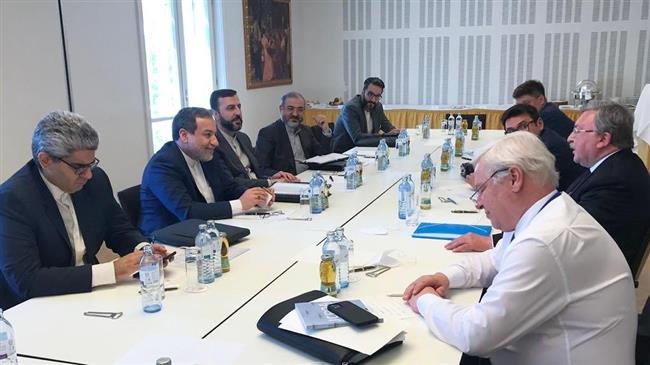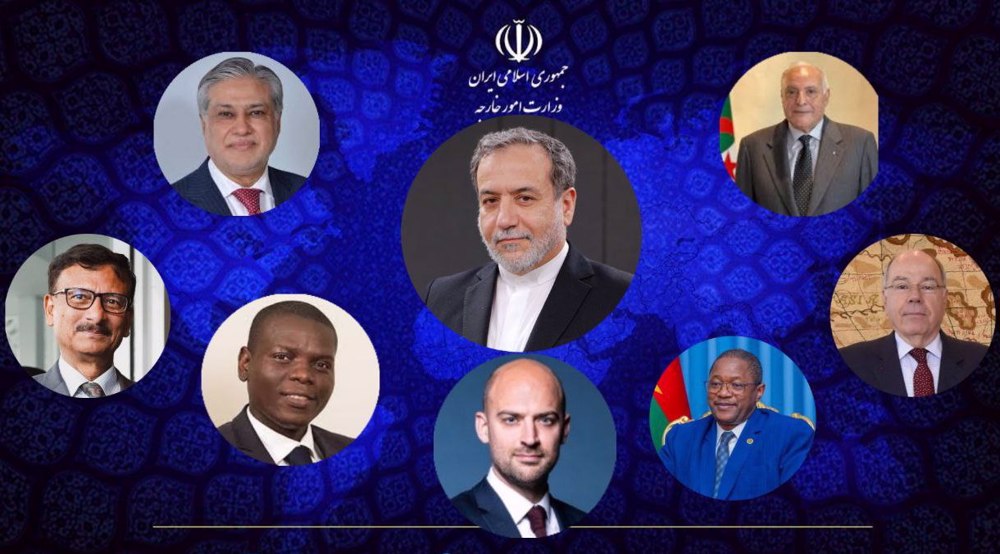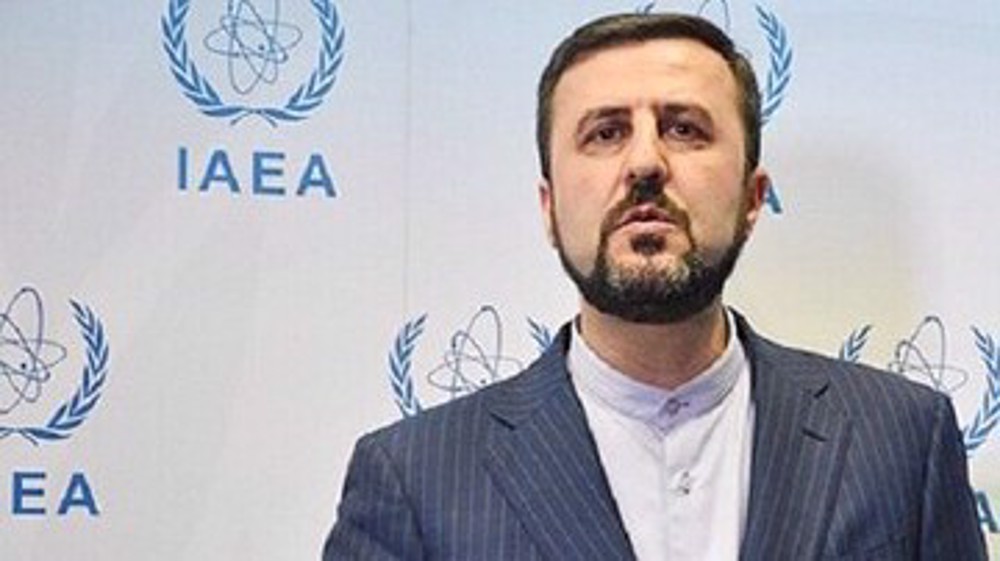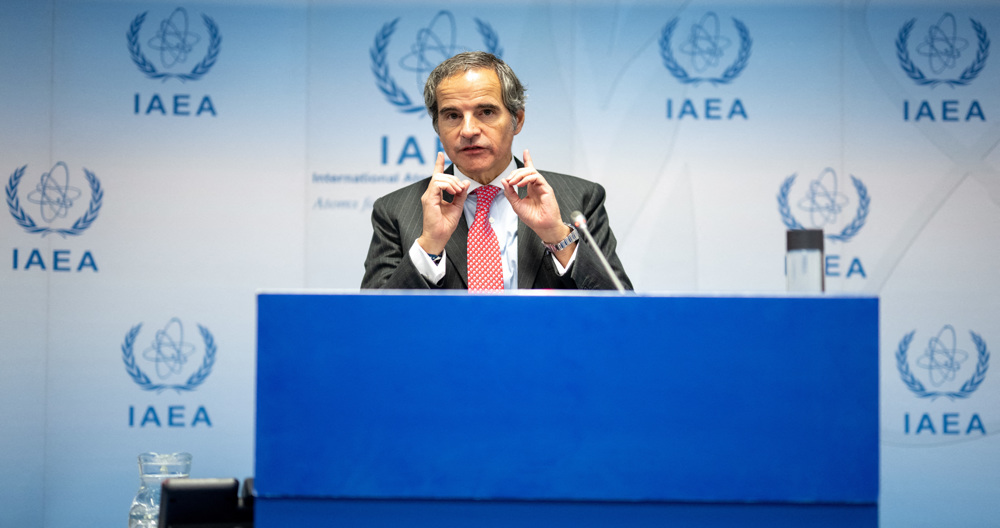Top negotiator: Tangible progress made in Vienna talks on revival of Iran nuclear deal
Iran’s top negotiator in Vienna talks aimed at reviving the 2015 landmark nuclear agreement between Tehran and world powers says the participating delegations have made tangible progress in negotiations.
Abbas Araqchi, who is also Iran’s deputy foreign minister for political affairs, made the remarks in an interview with Al Jazeera television network, the outlines of which were published on Thursday.
“Good and tangible progress has been made on various issues during Vienna talks. We believe that we are closer to a [final] agreement than any time before, but there are still certain outstanding issues, which need more deliberation,” Araqchi said.
Iran’s top negotiator said all sides must take tough decisions, noting that Tehran has already made this difficult decision by remaining committed to the the deal, which is officially known as the Joint Comprehensive Plan of Action (JCPOA), despite the withdrawal of the United States from it.
Araghchi, added, “If the nuclear deal is still alive, it has been owed to Iran's actions.”
“The negotiating parties need to know that Iran has been victimized, and that Washington needs to rectify the path it has already taken in the negotiations,” Araqchi said, adding, “Iran has suffered a lot in recent years due to the US withdrawal from the nuclear deal.”
Iran's top negotiator noted that the Islamic Republic wants other parties to the deal to affirm that what happened with [former US President Donald] Trump's withdrawal from the deal would never happen under other US presidents.
Iran election will not affect outcome of Vienna talks
In another part of the interview, Araghchi touched upon the forthcoming presidential election in Iran, emphasizing that the outcome of Friday polls and a change in the Iranian administration will have no impact on the outcome of the ongoing talks in the Austrian capital.
He added that the Iranian negotiating team will continue talks based on the country’s domestic policy on this issue.
Araghchi stated that if the Iranian team managed to clinch a good agreement with the other parties, it would be accepted. Otherwise, he added, no agreement would be accepted by Iran either under the incumbent administration or its successor.
Russia: More clarity achieved regarding one of most controversial issues
Meanwhile, the Russian Ambassador to International Organizations in Vienna Mikhail Ulyanov confirmed in a Thursday tweet that real progress has been made in Vienna talks on the JCPOA.
He added that the negotiating parties have managed to achieve “more clarity with regard to one of the most controversial issues” which is the “implementation plan (who should do what and when).”
The Russian ambassador, however, added that some difficult and time-consuming topics still remain unresolved.
The #ViennaTalks are getting progress. Over the last couple of days we achieved more clarity with regard to one of the most controversial issues-Implementation plan (who should do what and when). However some difficult and time-consuming topics still remain unresolved.
— Mikhail Ulyanov (@Amb_Ulyanov) June 17, 2021
Iranian, Russian delegates discuss JCPOA in Vienna meeting
In a related development on Thursday, Iranian and Russian delegations held an official meeting to discuss issues concerning the revival of the JCPOA in the Austrian capital.
According to Iran's official IRNA news agency, the meeting was attended by Araghchi and Ulyanov, which was the second meeting held since the sixth round of talks on the full restoration of the landmark deal began on June 12.
The two sides, as IRNA reported, reviewed each other’s positions on the process of revitalizing the JCPOA.
Following the meeting, Ulyanov said in a tweet that “numerous meetings in different formats” are being held concerning the ongoing talks in Vienna, and the Russian delegates “compared notes with Iranian colleagues.”
“The #ViennaTalks consist of numerous meetings in different formats-bilateral, trilateral, with Iran and without US, with US and without Iran etc. Today once again we compared our notes with Iranian colleagues,” Ulyanov wrote.
The #ViennaTalks consist of numerous meetings in different formats-bilateral, trilateral, with Iran and without US, with US and without Iran etc. Today once again we compared our notes with Iranian colleagues. pic.twitter.com/VqhpDvMGFJ
— Mikhail Ulyanov (@Amb_Ulyanov) June 17, 2021
Representatives of Iran and the other five signatories to the nuclear agreement, namely Britain, France, Germany, Russia and China, have been engaged in the Vienna process since early April with the purpose of finding ways to bring the United States back to the deal and prepare the ground for its full implementation.
A US delegation is also in the Austrian capital, but it is not attending the discussions because the United States is not a party to the nuclear accord.
Former US president Trump abandoned the deal and reimposed the anti-Iran sanctions that the JCPOA had lifted. He also placed additional sanctions on Iran under other pretexts not related to the nuclear case as part of the “maximum pressure” campaign.
Following a year of strategic patience, Iran resorted to its legal rights stipulated in Article 26 of the JCPOA, which grants a party the right to suspend its contractual commitments in case of non-compliance by other signatories, and suspend some of the restrictions imposed on its nuclear energy program.
Now, the new US administration says it wants to compensate for Trump’s mistake and rejoin the deal, but it is showing an overriding propensity for maintaining some of the sanctions as a tool of pressure.
Tehran insists that all sanctions should first be removed in a verifiable manner before the Islamic Republic reverses its remedial measures.
VIDEO | Intl. Day for the Elimination of Violence against Women: A stark reminder of Gaza women
Australia denies ex-Israeli minister Shaked visa
VIDEO | 85% of Yemeni displaced people face daily hunger crisis
US House passes bill targeting charities and pro-Palestine groups
VIDEO | Supporting Gaza genocide
Hezbollah attacks Israeli forces after Lebanese homes blown up
World leaders, states hail ICC arrest warrants for Netanyahu, Gallant
MP: US accountable for possible Israeli 'foolishness' to attack Iraq











 This makes it easy to access the Press TV website
This makes it easy to access the Press TV website